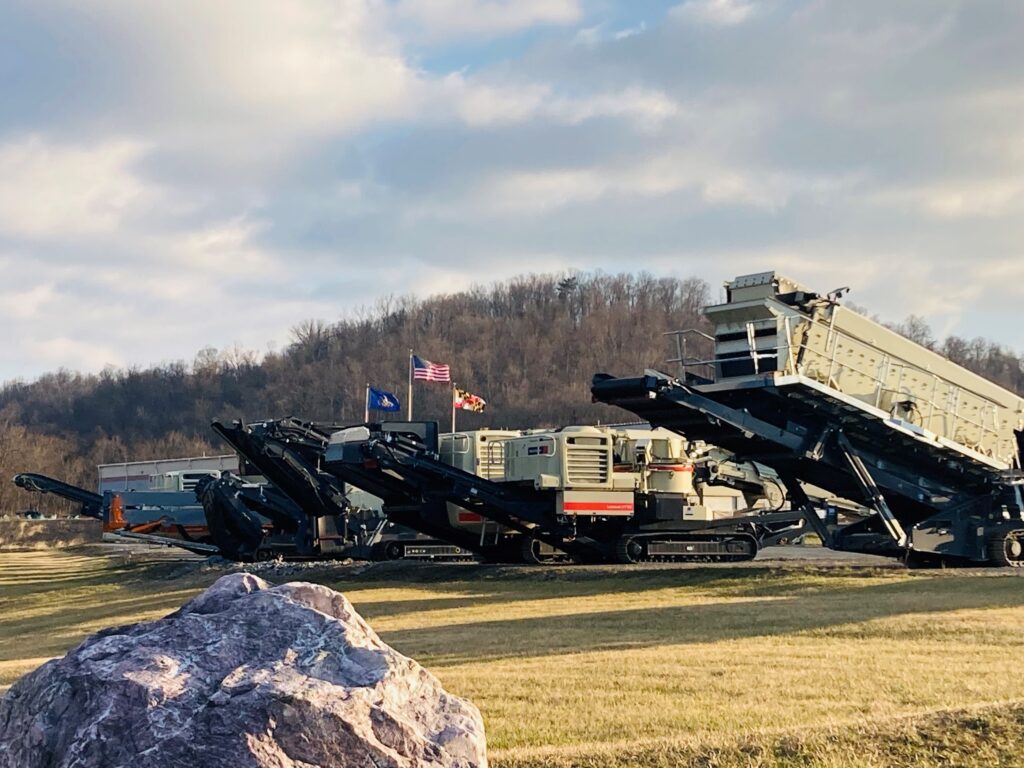Mobile plant encompasses various machinery and vehicles used in construction, mining, and agriculture industries. As diverse as these machines are, so are the risks they present.
Mobile plant accidents can occur for various reasons: malfunctioning parts, operator error, inadequate safety measures, and lack of maintenance are just a few examples. Knowledge of these common risks and a thorough risk assessment are essential for a sound mobile plant safety strategy.
12 Essential Safety Tips
Mobile plant safety is an amalgamation of awareness, caution, and proactive measures. Below are twelve tips that can guide you in ensuring safety when dealing with mobile plants.
1. Awareness Of Moving Parts
Every mobile plant comes equipped with moving parts. Some are visible, such as the boom arm of an excavator, while others may be hidden inside the machinery. Accidental contact with these moving parts can result in serious injuries.
You must maintain a safe distance from these parts and use the appropriate guards and protective barriers to prevent accidental contact.
2. Prevention Of Falling Objects
Mobile plant machines such as cranes and excavators are designed to lift heavy objects, and an accidental drop can be disastrous. Always be aware of overhead loads and stay clear of the lifting area. Using safety nets and toe-boards can also help in preventing objects from falling.
3. Avoiding Burns
Heat is a common byproduct of mechanical processes. Mobile plant engines, exhausts, and certain mechanical parts can become hot during operation. You must stay at a safe distance from these parts. When you must come into contact with hot surfaces, wearing heat-resistant gloves and other protective clothing can provide an added layer of protection.
4. Protection Against Electric Shocks
Mobile plant units, especially those used in construction, often come into contact with high-voltage equipment. Electric shocks can be deadly, so you should never touch electrical equipment without the appropriate safety gear. All safety information and procedures for working with electrical equipment should be read thoroughly and followed strictly.
5. Protection From Toxic Fumes
Many of these machines, particularly those powered by diesel or other fuels, emit toxic fumes during operation. Long-term exposure to these fumes can lead to severe respiratory illnesses. Always wear proper respiratory protection when working around such machinery, and aim to work in well-ventilated areas whenever possible.
6. Minimizing Noise-Related Damage
Prolonged exposure to the loud noises generated by mobile plant equipment can cause permanent hearing damage. Hearing protection devices, such as earplugs and earmuffs, are necessary to protect against hearing loss caused by excessive noise. In addition, soundproof operator cabins and regular machine maintenance can also help to reduce noise levels.
7. Preventing Entrapment
Heavy-duty machines, such as bulldozers, compactors, and excavators, can easily trap and crush a person who isn’t paying attention and is in the wrong place.
When working near mobile plants, always be aware of what’s happening around you, and stay away from unsafe areas. Regularly rehearse safety drills to ensure everyone knows what to do in an emergency.
8. Mitigating Slips, Trips, & Falls
Uneven surfaces and wet or slick floors around mobile plant equipment can result in people slipping and falling over. Keeping work areas clean, wearing slip-resistant shoes, and using appropriate signage to warn of potential hazards can all help to prevent such incidents.
9. Avoiding Vehicle Accidents
Mobile plants are heavy-duty vehicles, and can be involved in accidents as with any other vehicle. Always adhere to speed limits, use seatbelts, and avoid distractions while operating these machines. Additionally, ensure all operators are well-trained and competent to operate their assigned machinery.
10. Prevention Of Fires
If mobile plants aren’t maintained properly, they can become a significant fire hazard. Flammable materials, such as oil and gas, can be ignited by a hot surface or a stray spark. Regular inspections for leaks, proper maintenance of electrical systems, and ready access to fire extinguishers can help to mitigate this risk.
11. Safety When Reversing Vehicles
Reversing accidents are a common cause of mobile plant accidents. Using spotters, installing cameras or proximity sensors, and employing effective communication can prevent such incidents. Always be aware of blind spots and maintain clear visibility when operating mobile plant machines.
12. Safe Operation Of Cranes & Lifting Machines
Cranes and lifting machines pose a unique set of risks. Overloading, improper rigging, and working in adverse weather conditions can all lead to accidents. Always follow manufacturer guidelines for load limits, use the right equipment, and closely monitor weather conditions.
Implementing Safety Measures
Implementing safety measures requires more than just understanding the risks. It necessitates a comprehensive safety management system that includes creating and enforcing safety rules at the organizational level. This system should encompass employee training and competency requirements and effective communication methods to ensure everyone understands their roles and responsibilities.
Mobile Plant Maintenance & Inspection
Maintenance, and inspections cannot be neglected even with all these safety measures. Regular checks and servicing can ensure that your machinery functions as it should, reducing the risk of unexpected malfunctions or accidents.
Operator manuals can serve as an invaluable guide for inspections, outlining specific areas to check and how to identify potential problems. Always remember, a well-maintained machine is a safer machine.
Take The Next Step Towards A Safer Mobile Plant Environment With Mellott
In mobile plant safety, understanding hazards and implementing measures is just the beginning. It’s about building a culture prioritizing safety, where everyone understands their role. As this field evolves with emerging technologies, staying informed and adaptable is crucial.
Safety is a journey, and Mellott is here to help. Our expertise can provide tailored solutions for your unique needs and challenges. Contact us today at 888.621.8533 or online , and let’s work together to create a safer work environment.

